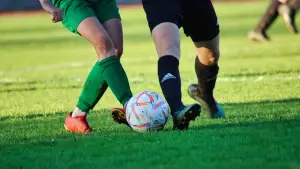What is storytelling? Can you tell me what it truly is?
Did you know that the Ngas people of Plateau state are known for their love of dog meat, popularly known as 404, nam-as or dogmacin? They also use dog teeth as protective talismans for their children to wear on their necks and wrists to ward off evil and evoke the cunning spirit of the wild dog.
Did you know that the place called Yankari is a mispronounced phrase in Dhouri – Yan kari? A question that means – what took him there? This sacred forest, now a Games reserve, was called that because of how vast, thick, and dangerous it was. A place where men easily got lost and devoured by wild animals. The Duguri people who inhabit the land, hunted in the forest in parties, but no man ever went there alone.
Many years later, the Games Reserve was named after a mispronunciation of the phrase. Before the 1956 creation, it was also a place where suitors who were interested in the same girls went to a duel to death. The forest is believed to hold great strength and potency.

Though, only half of what you read above is true, how close were you to believing all of it? A lot of our beliefs about people, cultures, customs, and even history are greatly influenced by the kind of narratives we heard.
Our worldviews are shaped by the stories we absorb. Be they in exaggerated folktales, music, banter, or even in the unpleasantness of disputes. You believe what you believe because of the things you’ve seen, heard, read, experienced, assumed, or felt.
As one of my favorite writers has said, there is great danger in a single story. And I believe that the only way out of bad stories and untruthful narratives is by telling good and true ones.
You have to interrogate the tales that come your way and debunk myths and lies especially now more than ever, as ethno-religious tensions are taut in Nigeria. Do not just listen to a wrong recount and think about its falsehood, but speak up and counter it.
Stories, I believe, are the most powerful media for conveying difficult truths and preserving enduring history. When they are told right, stories change the world. It is evident in us. Whether you believe it or not, our cultures, faiths, countries, entertainment, histories, and values were passed down to us as stories. Tales, legends, historical texts, Holy books, folklore, parables, divinely preserved stories, or orally recounted genealogies – all are stories. Until we learn the power of stories, we will tell them wrongly and abuse this sacred tool. Bad storytelling is how we got here.
What is storytelling?
In many Northern urban areas, a Muslim and a Christian have become so distrustful of each other that they are not so confident being neighbors again. At least not like it was in the past. I come from a people who rarely intermarry, and I must confess that my tribe’s people though not populous, are like many ethnic groups in Nigeria. They can be quite ethnocentric in certain areas, yet also boast of diversity in several ways. Like our Faith for example. Most of our families are of mixed religions and we’ve so far, coexisted with little to no spite.
I was taken aback, however, by the expectations I saw in the world when I interacted with people from different backgrounds. For instance, I didn’t fully understand why I had to be ‘cautious’ about folks from other faiths. Despite what I had seen and heard during the religious crisis in Bauchi and Tafawa Balwewa over the years. I could not fathom why I suddenly had to start relating differently with people from a different faith. I knew deep within me that my uncle, aunts, and other relatives, who are of different beliefs, posed no threat to me.
Yet, it made a little sense to start being extra careful because people I know and love were almost lynched by their former neighbors. Folks they had lived with for decades. Yes, a few extremists cannot define the whole batch and it was with this mindset I continued to operate.
When I got to Jos for my undergraduate program many years later, I heard stories that made my stool run watery. People who survived the 2001 and 2007 crises narrated the horrors they witnessed. And it made sense that they’ll be wary of the side they saw as the enemy. Stories of how Christians and Muslims attacked each other in retaliation and defense, both sides had victims and yet perpetrators. It made sense to learn the history of this famed unsafe city from those who have lived in it through layers of violence.
I have no right to apportion blame or labels, I am simply a writer documenting the world as I have experienced it. I didn’t know when I also started learning to flinch or walk fast whenever I heard some unusual sound along Bauchi Road. The most interesting part is, I discovered that I do not react this way in places like Du for instance. This is how stories affected my interactions with the world. It is with great restraint I am refraining from diving into the cultural labels and ethnic slurs we’ve awarded each other because of bad stories.
I understand that our lives have been fractured by a lot, but I also know that good stories heal so much more. If I, who was born and raised in Bauchi, Northeastern Nigeria can learn fear and I am ashamed to say so. Even to the point of being overly cautious around people of a certain background. The usual cocktails of poverty, illiteracy, and extremism, or at least what I perceive as these, with nothing to hold onto but stories I’ve heard. How then can I be mad at Oghenerukevwe for saying all of us in the North are Hausa?
I’ve been called names like Arna, kafura and these labels sting. Yet I, who profiles others, also get offended when I am profiled or mislabelled. After all, those who are labeling are only working with the bad stories they have heard and believed. We’re all labeling (and doing a very poor job by the way,) because of the stories we’ve been told. The stories we ourselves are now telling.
Stories inspire, educate, transform, inform, correct, and instruct. They are the potent mixture that serves as the base in this cauldron we call our world. You hear of Germany and naturally, you think of cars and great machinery and maybe Nazis. You think of Nigeria and think of Afrobeat, Nollywood, and most likely fraud. You can think these thoughts because of stories. All stories have two sides. We must learn to tell them both with equal amounts of vigor and passion and if possible, tie the bow with a story of what could be.
Storytelling is how we got here. It is also how we can get out of here. We must change the narrative as we travel and move to our destination. Let’s listen to stories, sift good ones from bad ones, and vow to be non-carriers of bad stories but viral vectors of good ones.




